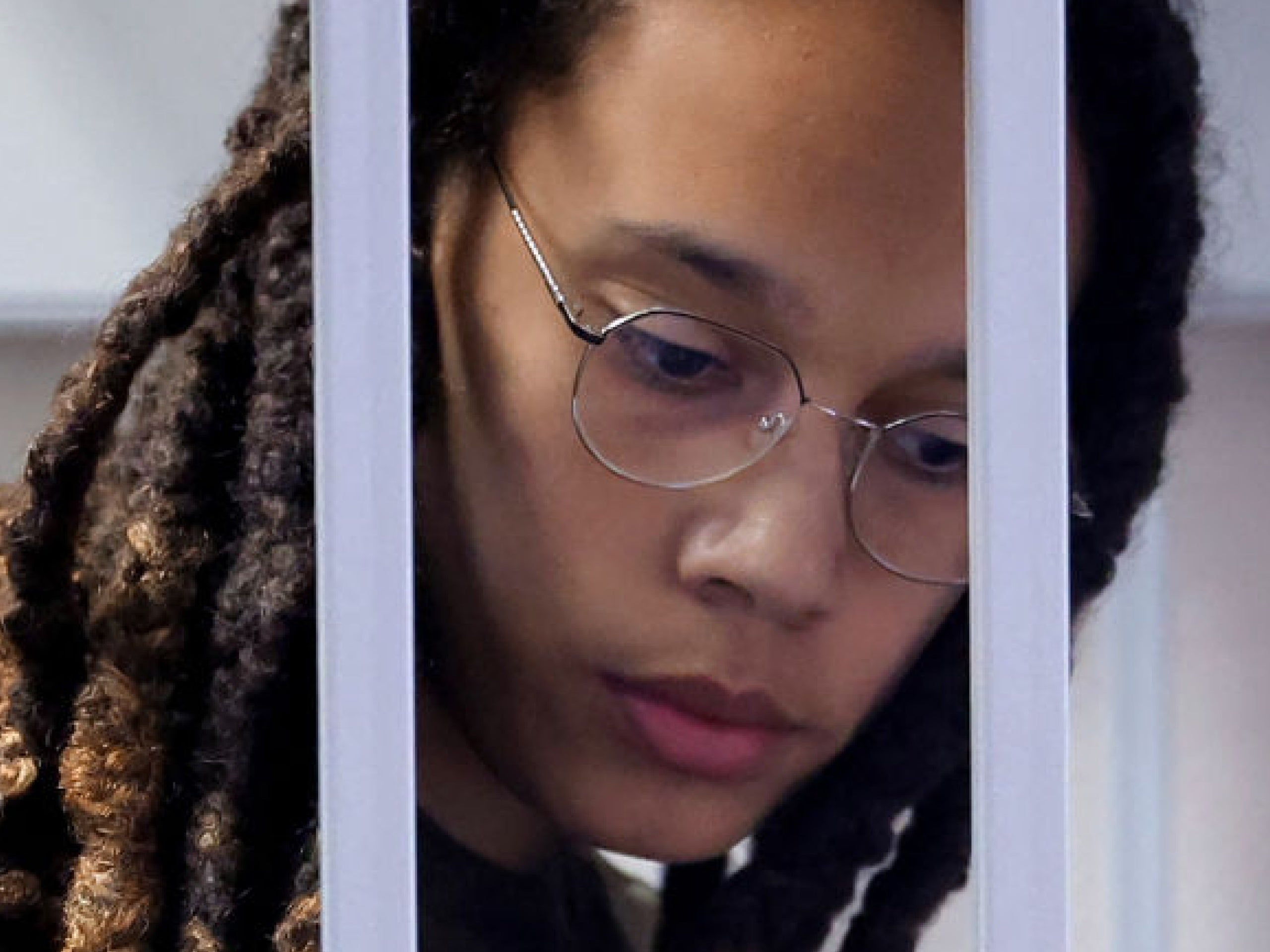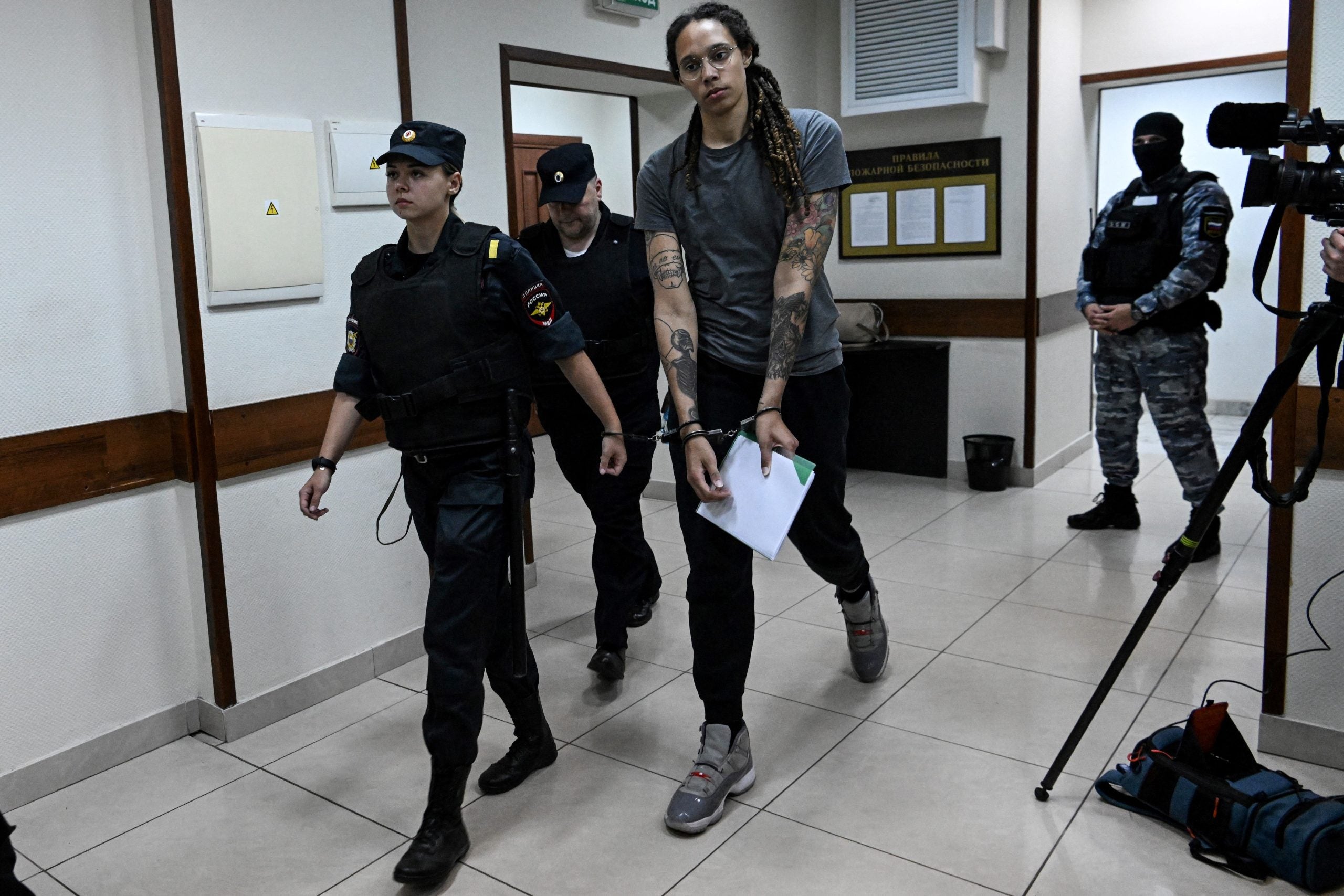
WNBA player Brittney Griner had received national attention since March 5, when Russian news agency TASS revealed she was detained for carrying vape cartridges containing hashish oil. The offense, which Griner called an “honest mistake,” has led to her being charged for drug smuggling and possession for Russia’s political gain.
Many expected consequences for Griner — but not the nine years and six months she was sentenced to. “One of her lawyers in Russia mentioned that her sentence of nine years is too much for a typical case like this,” Arash Hashemi, a lawyer who handles civil rights cases, says to ESSENCE. “She said in a case like this; it’s either four and a half to six years typically…I believe her sentence does not meet the crime.”
Read “Who Is Brittney Griner? A Detailed Look At The WNBA Player’s Life” here.
Before her sentencing, Griner’s trial was pushed back three times amidst the country’s invasion of Ukraine. This all but confirmed Griner was caught in the crosshairs of the violent conflict the U.S has become involved in. It’s clear sentencing and pre-trial treatment had less to do with the crime and more with being a political statement from Russia “I think we know at this point that it’s way more than just the law that’s being broken, it’s definitely political,” says attorney Jamie Wright.
Griner was also held in custody for nearly five months before she was given a trial. Hashemi believes that’s extreme.
“She was arrested at the airport and she was detained and held in custody until her next court date. That would never happen in the U.S.,” Hashemi says. “If you are in custody in the U.S. and you cannot afford bail or have a no bail hold you have to be brought in front of a judge within 48 hours.”
He also describes how Brittney is being treated as a felon and not someone who committed a misdemeanor. “In the U.S., no matter what jurisdiction you are, they wouldn’t treat you the way she was treated in the Russian jurisdiction. She would be offered more rights.”

Russia has been criticized for not being socially inclusive. Griner being a Black and openly gay woman may be contributing to the harsh sentencing.
“They still use the word ‘Negro’ in Russia to refer to Black people,” says Alphonso David, CEO and president of the Global Black Economic Forum says. “Police have noted that even though there has been a decrease in crime by foreign nationals, foreign nationals and specifically Black people are rejected in Russia.” Therefore, the severity of Rusia’s drug laws merged with the country’s racial discrimination results in a severe sentence for a misdemeanor that is being treated as drug smuggling.
On August 4, President Biden called on Russia for Griner’s immediate release. Before her court date, Biden signed off on the offering of Viktor Bout, a Russian arms dealer, in exchange for Brittney Griner and Paul Whelan, a former U.S. Marine arrested on espionage charges. Russia wants to gauge their power, so the deal will likely be prolonged.
“I think Moscow is going to take its time by holding out on the negotiations to get their best option. I don’t think this is going to be an easy diplomacy option for us. I think it’s going to be difficult,” says Jamie Wright, Principal at J.Wright Law Group, P.C. Russia understands the magnitude of the prison swap, as they set the tone on the world stage on how to negotiate with the United States. The Biden administration will have to be calculated in how they handle this situation.
“It will create a precedent for other countries and especially Russia to take our citizens hostage and exchange them for either their own citizens that are in prison here, money, or whatever they want,” says Hashemi. Still, the goal is to bring Griner home.
To accelerate this process, advocacy is advised. The more pressure that is applied on the United States Government from the public, the quicker our elected officials will prioritize incentivizing Russia. Individuals are also encouraged to contact state representatives on Griner’s behalf. Collectively, mobilizing is an option. Wright recommends “droves of people going to Washington D.C. to push the senators,” as a solution.
This may not be a quick process, but staying consistent and operating as a unit is key to helping Griner regain her freedom.